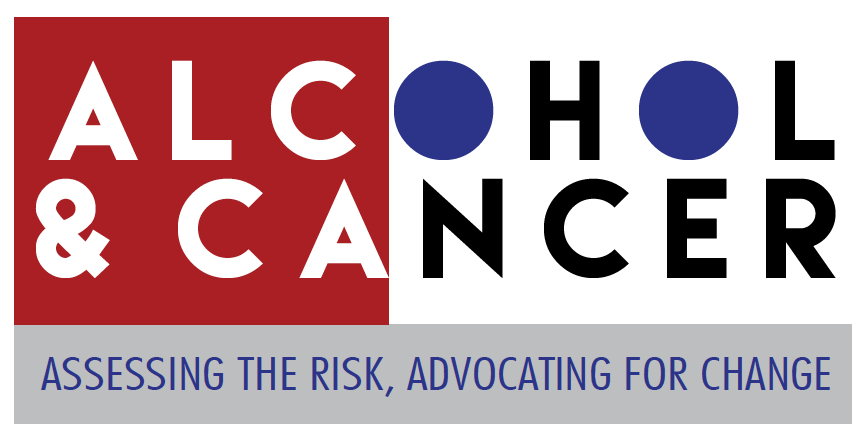Blog
Powdered Alcohol Commentary in JAMA
- Details
- Created: Thursday, July 09 2015 08:40

In March 2015, the U.S. Alcohol and Tobacco Tax and Trade Bureau (TTB) approved powdered alcohol for sale. The powdered substance is anticipated to hit the shelves this year. As previous AJ posts outline, products like Palcohol are a recipe for alcohol-related harm and pose multiple public health concerns, especially for youth.
As of June 2015, 22 states have passed powdered alcohol bans : Alabama, Alaska, Connecticut, Georgia, Kansas, Indiana, Louisiana, Maine, Nebraska, Nevada, North Carolina, North Dakota, Ohio, Oregon, South Carolina, Tennessee, Utah, Vermont, Virginia and Washington. Maryland and Minnesota have passed temporary one-year bans. Colorado, Delaware, Michigan, and New Mexico included powdered alcohol in their statutory definitions of alcohol so that the product can be regulated under their existing alcohol statutes.
U.S. Senator Chuck Schumer (D-NY) continues his call for federal legislation to stop powdered alcohol products including Palcohol. Lipsmark, the producer of Palcohol, immediately hired DC lobbyists who filed registration forms after Schumer announced his powdered alcohol amendment.
A recent poll revealed that 90% of adults are concerned about powdered alcohol and underage youth.
See and sign the Alcohol Justice call for legislation to ban powdered alcohol in California. Take action on the federal level here.
Petition for Alcohol Ad-Free Transit in NYC
- Details
- Created: Thursday, July 09 2015 08:18

The momentum continues to build as Building Alcohol Ad-Free Transit (BAAFT) and its many partners advance the campaign to ban alcohol ads on subways, buses, and stations in New York City. The growing evidence clearly shows: more exposure to alcohol ads means earlier and more drinking among youth. Hundreds of thousands of school children in NYC ride buses and subways each day, and 674,000 students receive MetroCards each year, exposing youth to higher levels of alcohol advertising.
City leaders play a pivotal role in making trips to and from school a healthier experience, free from alcohol ads.The BAAFT petition calls on NYC Mayor Bill de Blasio and First Lady Chirlane McCray to join the demand for Metropolitan Transportation Authority (MTA) to remove alcohol advertising from NYC public transit. The Mayor and First Lady should continue the NYC legacy of urban public health by joining BAAFT and its 140+ partners in this campaign to protect young people's health and safety.
To join the BAAFT campaign, sign, share, and retweet the petition.
Alcohol & Cancer Symposium 2015
- Details
- Created: Monday, May 18 2015 12:43

The first symposium on alcohol and cancer in the U.S., held April 16 in NYC, began important conversations around "what do we know?" and "what are we going to do about it?" with regard to alcohol's role(s) in cancer illness and death. The symposium was sponsored by the U.S. Alcohol Policy Alliance, IOGT International, New York Alcohol Policy Alliance, Staten Island Partnership for Community Wellness, UNIDOS Coalition, Columbia University Mailman School of Public Health, and Alcohol Justice.
Opening and closing keynotes shared powerful messages and inspirational examples of what cancer prevention advocates and alcohol policy advocates can accomplish, and have accomplished, together. Wendy Yared, Director of the Association of European Cancer Leagues and a founding member of the EU Alcohol & Health Forum, described ways that she and her colleagues in the EU include alcohol in public messaging about reducing cancer risk factors and lowering/halting alcohol consumption as a health-promoting behavior. Nicholas Freudenberg, public health professor at CUNY and Hunter College and founder/director of Corporations and Health Watch, outlined the corporate consumption complex with regard to alcohol (and tobacco and food), along with lessons about building a movement to dismantle said complex: frame the conflict, invite broad participation, operate at multiple levels, target specific companies, engage government, and promote democracy.
Researchers from Boston University, Columbia University, and New York University provided updates on current research regarding alcohol's connection to, and association with, incidence of and demographic disparities in alcohol-related cancers in the U.S.; alcohol as a modifiable risk factor for intermediate markers of breast cancer in girls; and the association of low alcohol consumption with reduced risk of obesity-related cancers. Public health advocates from Breast Cancer Action, the Mount Sinai Health System Chaplaincy, and Alcohol Justice shared about existing gaps and opportunities for organizations to build alliances, resist industry influence, and advocate for evidence-based policies that would make a difference in alcohol-related cancers in the U.S.
Alcohol has been identified as a Group 1 (cancerous to humans) carcinogen by the World Health Organization's International Agency for Research on Cancer (IARC) for nearly three decades. As the strong and growing research base shows, alcohol is a causal factor -- an avoidable, preventable one -- for at least seven types of cancer. Even low levels of alcohol consumption increase risk for various cancers including breast cancer.
Yet a recent study found that while more than 70% of state comprehensive cancer control plans in the U.S. recognize the link between alcohol use and cancer, effective prevention-level alcohol policies were absent from nearly all. For example, only two out of 69 total plans included increases in alcohol prices, one of the most effective alcohol policies available, as a strategy to prevent excessive alcohol use. Meanwhile, the Scientific Report from the committee updating the 2015 Dietary Guidelines for Americans (a joint effort from the U.S. Department of Agriculture and the U.S. Department of Health and Human Services) dangerously shifted from evidence-based recommendations and definition for lower-risk drinking, to a two-to-threefold increase in daily consumption limits, with no research base to support such a shift.
The 2015 Alcohol & Cancer Symposium is an important first step in addressing alcohol-related cancers in the U.S. The opportunities to reduce rates of illness and death from cancer by lowering alcohol consumption are many. Go to alcoholandcancer.info to learn more.
More Articles ...
Subcategories
Help us hold Big Alcohol accountable for the harm its products cause.
| GET ACTION ALERTS AND eNEWS |
STAY CONNECTED    |
CONTACT US 24 Belvedere St. San Rafael, CA 94901 415-456-5692 |
SUPPORT US Terms of Service & Privacy Policy |


